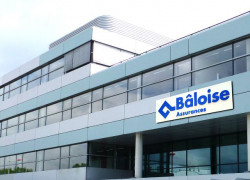Quintet highlights 5 core convictions for the global economy and markets in 2021
In the depths of winter, European private bank looks to the future with confidence, expects worldwide recovery to accelerate in the spring.
Following the steepest recession in nearly a century, global economic growth should accelerate rapidly as winter lockdown restrictions ease. Underpinned by increasingly widespread vaccination, ongoing policy support and reduced political uncertainty, worldwide GDP should expand by more than 5% in 2021.
At the start of the new year, in this favorable context, US and emerging-market equities, European high-yield and emerging-market sovereign hard-currency bonds, and alternatives appear to be especially attractive components of a balanced portfolio. Over the longer term, technology stocks should continue to outperform.
Those are the views of Bill Street, Group Chief Investment Officer at Quintet Private Bank, which today released Counterpoint 2021, its analysis of the global economy, financial markets and key asset classes.
Based on expectations of gradual, effective immunization – staring with high-risk groups – Street highlighted five core convictions for the next 12 months, including the implications for investors:
(1) Spring is coming: It is not too early to invest in the early phase of the cycle
Assets geared to accelerating growth, such as equities, should benefit during the early phase of the cycle. Demand for smaller and more cyclical businesses is also likely to strengthen, while the discount for lower-quality companies should drift lower. As safe-haven assets shed their appeal, the US dollar should weaken further, benefitting emerging markets. Gold is also likely to lose some of its shine in this early phase.
(2) The eternal zero: Central banks are likely to keep real rates at rock bottom
Low real rates mean that the discount applied to risk assets is lower than in past cycles, so equities and higher-yielding credit should be well supported. In the early phase of the cycle, assets strongly linked to improving economic activity, such as value stocks, may outperform. Over the medium term, growth stocks – such as those in the tech sector – will continue to benefit from very low interest rates. Private equity, private credit, venture capital, and the intersection of sustainability themes with infrastructure and property, as well as hedge fund-based multi-strategies, are likely to serve as return enhancers.
(3) Big government: Coordinated fiscal and monetary policy is likely to play an even greater role
Europe’s €750 billion Recovery Fund – which will finance public spending and investment, backed by joint debt issuance – will pave the way for further fiscal integration, leading to an appreciation of the euro versus the dollar and on a trade-weighted basis. Globally, corporate default rates should remain below the level witnessed during earlier recessions, supporting lower-quality, high-yield credit. This should also support a recovery in distressed sectors and, despite the magnitude of the COVID-19 shock, leave the economy less structurally impaired than previously thought.
(4) A multi-polar world: Major economies should become more self-reliant
Given the impact of the pandemic on trade flows, supply chains and the overall trajectory of globalization, regional economic blocs will become increasingly influential over the next 10 years. This should lead to new investment and diversification opportunities across geographies, likely playing out over many years. As the investment universe expands and major economies decouple, portfolio diversification will become even more important. While there are attractive opportunities across all regions, the importance of emerging markets, in particular, is likely to increase.
(5) A greener future: Sustainability is likely to be at the heart of structural change
As the world renews its commitment to combating climate change, sustainability has become a driver of structural change – and a dominant investment concept. Markets for green assets are set to grow exponentially in size and scope. In addition, technological themes are likely to intersect with environmental ones, including in areas such as greentech, and government policies should take this into account.
Quintet’s full Counterpoint 2021 is available at: https://media.quintet.com/counterpoint-outlook-2021-en
Communiqués liés
Drees & Sommer lauréat du Vision Zero Award
Drees & Sommer, société leader dans le conseil et la réalisation de projets d...
PwC Luxembourg welcomes New Head of Human Resources, Delphin...
PwC Luxembourg is delighted to welcome its new Head of Human Resources, Delphine...
BESIX RED relève les défis de 2023 grâce à l’unité e...
Malgré les défis sans précédent auquel le marché immobilier a fait face tou...
ION-owned LIST connects FastTrade electronic trading system ...
LIST, an ION company, today announces that it has successfully completed the cer...
Nomination de Benoît Piccart en tant que Head of Corporate ...
Après plus de 30 années chez Baloise, Marc Folmer, Directeur de la Gouvernance...
Votre monde, votre langue, votre assurance : l'Intelligence ...
AXA Luxembourg lance une initiative invitant les habitants et futurs habitants d...
Il n'y a aucun résultat pour votre recherche







